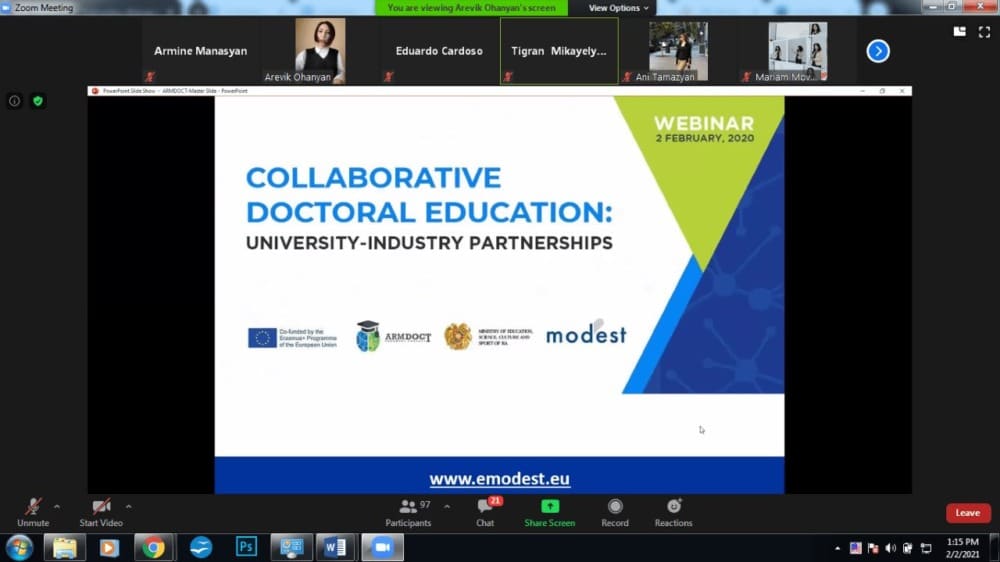On February 2, 2021, the members of the consortium of ARMDOCT and MODEST Erasmus + programs met online to discuss the organization of collaborative doctoral education and university-industry-partnership opportunities. It should be noted that both programs aim at reforming doctoral education in line with the Salzburg principles.
More than one hundred participants, including postgraduate students, researchers, education experts, and employers from RA and EU got to learn about the practices of collaborative doctoral program organization, national policies, and structures of partner countries- Italy, Latvia, France, and Poland. Also, the participants got acquainted with the current challenges of developing doctoral education and industry requirements during the online capacity-building webinar.
In her speech, Lana Karlova, the Program Coordinator of the Erasmus + Office in Armenia, emphasized the importance of university-industry dialogue to establish and strengthen collaboration in research, teaching, and other processes as key factors in the university’s progress. According to her, the education, research, and innovation triangle is a formation of framework by university-industry for the development of skills and knowledge, while in the post-war period, it is more than important to establish a high-level collaboration between the academic world and industry.
Arevik Ohanyan, the Program Coordinator of the ARMDOCT project who meantime is the Director of Research Incubator of the Eurasia International University, highlighted the recent joint-discussion by university-industry representatives, which took place recently at the National Assembly of the RA. She stated that the representatives of the industry will also be involved in the discussion of the second working package of the forthcoming ARMDOCT program, where the best Armenian examples of university-industry cooperation will be presented.
MODEST Project Coordinator, Director of the Study Development and Governance Improvement Program of University of Latvia Inga Skendere, presented the practice of Latvia’s doctoral education reform as a rapid response system to challenges. According to the speaker, the core of the new competitive model of doctoral education is the internationalization of the latter, with the active involvement of international students, the university’s academic staff, and industry. She also spoke about the competitive advantages.

